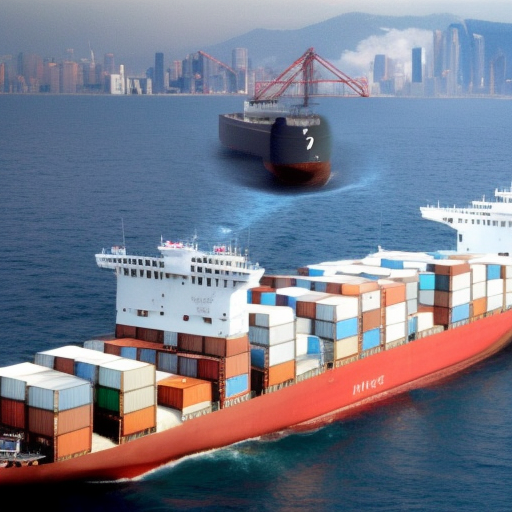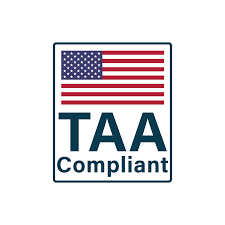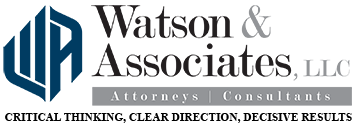Buy American Act BAA Compliance Lawyers & TAA Trade Agreements Act Attorneys
US Trade Agreements Act Attorneys and Buy American Act Compliance Lawyers Helping Government Contractors and Manufacturers Avoid Civil False Claims Act and Criminal Liability in BAA and TAA Fraud Investigations for Non-Compliance.
 Selling products or performing construction projects for the US government can be very lucrative. However, you can only benefit to the extent that you are compliant with the Buy American Act requirements (BAA Compliance) or the Trade Agreement Act compliance laws (TAA).
Selling products or performing construction projects for the US government can be very lucrative. However, you can only benefit to the extent that you are compliant with the Buy American Act requirements (BAA Compliance) or the Trade Agreement Act compliance laws (TAA).
The U.S. Department of Justice (DOJ) has published statistics on False Claims Act (FCA) settlements and judgments for fiscal year (FY) 2023, this was the highest number of settlements and judgments recorded. Of $2.68 billion in FCA settlements and judgments, a substantial amount ($1.8 billion) was attributable to healthcare fraud, trade agreements Act fraud and Buy American fraud.
Many companies find themselves being reactive to government investigations or defending themselves against criminal charges for either BAA compliance or TAA compliance violations.
At Watson & Associates, LLC, with offices in Washington DC and in Denver, Colorado, we provide compliance services to federal government contractors, subcontractors manufacturers, and health care equipment manufacturers, and IT and construction companies who are doing business directly, or indirectly with the federal government.
Federal enforcement agencies have increased the amount of Trade Agreements Act compliance investigations and Buy American Act False Claims Act cases against government contractors and product providers.
Basics From a High Level
The Trade Agreements Act (“TAA”) as stated in Federal Acquisition RegulationFAR 52.225-5 allows the President to waive Buy American Act (“BAA”) requirements for certain goods from designated countries. If your products are subject to the TAA legal rules, then the BAA general does not apply.
As mentioned before, construction companies, manufacturers, small businesses, and large DOD defense contractors are under more scrutiny from DOJ and OIG agencies. BAA compliance and Trade Agreements Act compliance investigations have become more common and government contractors and subcontractors/ manufacturers must be prepared to deal with government investigators and federal prosecutors. The contracting officers in many agencies are now paying more attention to this area of procurement.
Get Compliant and Reduce Your Exposure to Civil and Criminal Liability
Many of the clients that call us, are already under federal investigation for Buy American Act False Claims Act violation or have been charged or indicted for violation of BAA compliance or TAA compliance requirements. Due to the obvious increase in Buy American Act investigations by the Department of Justice (DOJ) or Office of Inspector General (OIG), many companies are seeking help becoming TAA BAA compliant.
Our Buy American Fraud and TAA Fraud investigation attorneys help companies, government contractors and manufacturers navigate through government contract fraud investigations from the OIG or DOJ. As criminal defense, Trade Agreements or Buy American Act False Claims Act defense lawyers, we help clients to address their current situations and program the company for future engagement with the federal government
Get Your Free Buy American Act Compliance Checklist Here
What are the Buy American Act Exceptions?
Under FAR 25.103 When one of the following exceptions applies, the contracting officer may acquire a foreign end product without regard to the restrictions of the Buy American statute:
(a) Public interest. The head of the agency may decide that domestic preference would be inconsistent with the public interest. This exception applies when an agency has an agreement with a foreign government that provides a blanket exception to the BAA Compliance statute.
(b) Nonavailability. The Buy American statute does not apply with respect to articles, materials, or supplies if articles, materials, or supplies of the class or kind to be acquired, either as end items or components, are not mined, produced, or manufactured in the United States in sufficient and reasonably available commercial quantities and of satisfactory quality.
What is a Domestic End Product under Buy American Regulations?
The definition of domestic end product. The Buy American Act includes unmanufactured end products mined or produced in the United States. The statute also defines end products as those manufactured in the United States, provided that
- the cost of the components mined, produced, or manufactured in the United States exceeds 50% ( or 55%) of the cost of all components, or
- the end product is a commercially available off-the-shelf (COTS) item.
- This is an area where contractors face false claims charges (criminal and civil).
How Do You Comply with the Buy American Act? What are the BAA Percentages?
The underlying thought when getting help becoming BAA compliance is to understand the percentages. Except for an end product that consists wholly or predominantly of iron or steel or a combination of both, the cost of its U.S. and qualifying country components exceeds 60 percent of the cost of all its components, except that the percentage will be 65 percent for items delivered in calendar years 2024 through 2028 and 75 percent for items delivered starting in calendar year 2029. but see paragraph (d) of this section. This test is applied to end products only and not to individual components. See More On Buy in America Act Frequently Asked Questions.
What are Components under Buy American Act Rules?
A component under BAA regulations is any “article, material, or supply incorporated directly into an end product or construction material.” See 48 CFR. 25.003. This is an area where there are numerous disputes during a Buy American Act fraud case or false claims charge. Be aware that components could potentially be considered as mined, produced, or manufactured in the United States, regardless of their actual place of origin, if
- the end product in which they are incorporated is manufactured in the United States, and
- the components are of a class or kind determined by the government not to be mined, produced, or manufactured in the United States
Are You Buy American Compliant? How to Calculate the Cost of Components.
Under Buy American Act compliance regulations cases, the costs of components are generally calculated based on allowable costs incurred by the contractor in purchasing or manufacturing the components. The statutes and cases suggest that
- for components purchased by the contractor, the cost of components includes the acquisition costs (including transportation costs to the place of incorporation into the end product or construction material), and any applicable duty (regardless of whether a duty-free certificate of entry is issued); and
- for components manufactured by the contractor, the cost of components includes all costs associated with the manufacture of the component (including transportation, as discussed above), and allocable overhead costs, but excluding profits and any costs associated with the manufacture of the end product.
What is Commercial Off the Shelf Under BAA Compliance Regulations?
Commercially available off-the-shelf (COTS) items for purposes of Buy American compliance typically include any item of supply (including construction material) that is
- a “commercial item,”
- sold in substantial quantities in the commercial marketplace; and
- offered to the government without modification, in the same form in which it is sold in the commercial marketplace.
What is “Manufactured” Under Buy American Regulations?
BAA regulations typically require that your end products at least 50-55% of all components be manufactured in the USA or designated country of origin. Government procurement rules do not conclusively preclude all item processing overseas, so long as certain other requirements are met. These are all complex factual and legal disputes involved during government investigations along with civil and criminal trials.
MINIMIZE CIVIL AND CRIMINAL EXPOSURE OR JAIL TIME – GET THE INFORMATION HERE
What is the Trade Agreements Act? What are TAA Compliance Requirements?
The Trade Agreements Act (TAA) is the regulation and or governing statute that implements numerous multilateral and bilateral international trade agreements and other trade initiatives. The Trade Agreement Act TAA compliance requirements apply to all government contracting GSA Schedule contracts unless the solicitation or awarded contract specifically excludes it. The Trade Agreement Act limits the country of origin for products sold through your GSA Schedule contract, in general, this means the following may be sold:
- Articles that are wholly the growth, product, or manufacture of the U.S. or a compliant country, or
- Articles that are “substantially transformed“ in the U.S. or a designated country into a new and different article of commerce with a name, character, or use distinct from that of the article or articles from which it was transformed.
Remember that it is the responsibility of each GSA Schedule contractor to ensure that product information is accurately incorporated into the contract and displayed on GSA Advantage throughout the life of the contract. It is a good practice to periodically review the country of origin of products offered on your GSA contract, as manufacturers sometimes change their manufacturing points. If you determine that a product country of origin has changed, the following directions can assist you in updating GSA Advantage. See the essential steps to becoming TAA compliant.
For more information about the TAA, refer to clause 52.225-5 Trade Agreements.
How to Become TAA Compliant?
 In order to become TAA compliant, organizations must adhere to certain requirements set forth by the Trade Agreements Act (TAA). The exact steps vary depending on the type of agreement and level of compliance needed. Generally, however, organizations should:
In order to become TAA compliant, organizations must adhere to certain requirements set forth by the Trade Agreements Act (TAA). The exact steps vary depending on the type of agreement and level of compliance needed. Generally, however, organizations should:
– Ensure that all purchasing complies with the Trade Agreements Act rules and regulations;
– Develop a process for evaluating supplier offers to ensure they meet TAA requirements;
– Train personnel on the specifics of TAA compliance;
– Work with suppliers to verify that their products are eligible for purchase under the Trade Agreement Act;
– Track any documents or forms provided by suppliers related to eligibility; and
– Review contracts to make sure that any foreign products are compliant with the TAA.
. See information about substantial transformation under the TAA and how to ensure your medical products and IT computer product meets Trade Agreement Act requirements.
What is Substantial Transformation Under the Trade Agreements Act?
The Trade American Act TAA requires that foreign end products be substantially transformed in the United States before being sold to the government. Substantial transformation is defined as a significant change in the product’s form, function, or character of an article. Many government contractors do not correctly assess whether their products are substantially transformed.
Watson & Associates, LLC Trade Agreements Act Attorneys – What We Do
Our Trade Agreements Act compliance attorneys defend manufacturer qui tam lawsuits when whistleblowers allege that the manufactured products do not comply with Trade Agreement Act statutes. The goal is to avoid false claims litigation and leave the company open to exposure to high civil fines and criminal liability and exposure under the False Claims Act. Our Trade Agreement Act attorneys help you to take immediate steps for Trade Agreements Act compliance. See information about the exceptions to the TAA Act.
- TAA BAA compliance assessment of components and manufacturing processes
- Analysis of complex government procurement systems where multiple players are involved
- Representation with DOJ and IG investigations
- Buy American Act bid protests
- Minimizing civil liability and reducing criminal fines
- Negotiations
- Buy American Act fraud defense
- BAA compliance defense in Buy American False Claims cases
- Trade Agreement Act compliance internal investigations for compliance
- GSA TAA Fraud Cases
- BAA vs TAA compliance requirements – Litigation and appeals
Buy American Act False Claims Act Investigation or False Claims Act Litigation Defense Lawyers
When the Department of Justice (DOJ) or Office of Inspector General, or some other federal law enforcement agency investigates, indicts a government contractor, or an individual under the False Claims Act Buy American Act fraud statutes, clients come to us for immediate legal representation.
Tips
- Do not speak to federal investigators without consulting with a False Claims Act defense attorney
- If you are served with a civil investigative demand CID, institute a legal hold (send out correspondence to all employees to not destroy or delete evidence
- DO not try to handle the case yourself and hope for the best, you may be target in a criminal case.
Trade Agreements Act TAA Compliance Investigation or GSA Schedule Procurement Fraud & False Claims Act Defense
The Trade Agreements Act has very strict rules when selling products to the U.S. Federal Government. The OIG or DOJ may decide to investigate your or your company for False Claims Act Trade Agreements Act TAA compliance fraud. Our federal government contractor defense lawyers at Watson & Associates, LLC understand TAA compliance regulations and can represent companies or individuals served with OID or DOJ civil investigative demands or subpoenas. If you are facing a grand jury indictment or need a criminal defense attorney in a Trade Agreements Act criminal case, we can help.
If you are a prime contractor, subcontractor, manufacturer, distributor, large or small business needing help in a government contractor fraud TAA compliance case, call immediately and speak to Theodore Watson. Call 1.866.601.5518 or email him here.
Tips on Becoming TAA Compliant
Avoid Buy American Act Fraud Cases & Trade Agreement Act False Claims Act Cases
Watson & Associates attorneys help contractors and suppliers defend against False Claims Act fraud cases from the Department of Justice that allege Buy American Act fraud and U.S. Trade Agreements Act non-compliance. If you are facing fines and criminal charges for products manufactured in China or other prohibited countries, give our federal defense law firm a call for immediate representation and defense.
Nationwide BAA & TAA Compliance Legal Support Services
Nationwide Buy American Act Compliance and Trade Agreements Act Attorneys : Our government contracting BAA compliance lawyers provide legal counsel and criminal defense lawyers to federal contractors throughout the United States and overseas including Alabama, Alaska, Arizona, Arkansas, California, Colorado, Connecticut, Delaware, Florida, Georgia, Hawaii, Idaho, Illinois, Indiana, Iowa, Kansas, Kentucky, Louisiana, Maine, Maryland, Massachusetts, Michigan, Minnesota, Mississippi, Missouri, Montana, Nebraska, Nevada, New Hampshire, New Jersey, New Mexico, New York, North Carolina, North Dakota, Ohio, Oklahoma, Oregon, Pennsylvania, Puerto Rico, Rhode Island, South Carolina, South Dakota, Tennessee, Texas, Utah, Vermont, Virginia, Washington, Washington DC, West Virginia, Wisconsin, Wyoming, and Virgin Islands. Call our Buy American Act compliance lawyers today for immediate help becoming TAA BAA compliant. 1-866-601-5518.
Call Watson’s Buy American Act Lawyers and TAA Trade Agreements Act Compliance Attorneys
Get Immediate Help:If you want to minimize or avoid false claims act fines, civil and criminal liability. As a government contractor, our Buy American Act compliance lawyers and government compliance attorneys can provide immediate legal advice. Representation if you are facing a TAA vs BAA investigation, high-profile case or some other problem.
If you are an overseas manufacturer, IT or medical products and equipment manufacturer, or somehow are involved in components for end products for federal government contracts, contact Watson & Associates TAA BAA compliant law firm and TAA Trade compliance lawyers at 1.866.601.5518 for immediate help.
